A surge in farmer interest in pre-nuptial agreements was evident at the IFA’s Farm Succession information meetings in Carlow and Cork last week.
Several farmers raised questions about the agreements and the fact that pre-nups are not legally binding in Ireland, citing examples of farms being “destroyed” by a marital breakdown.
Speaking at the events, agri-solicitor Aisling Meehan said pre-nuptial agreements are “becoming more of an issue” for farmers.
“I’m seeing more of it. I’m getting more enquiries. People are more concerned about it,” she said.
Legal standing
A pre-nuptial agreement is an agreement between two people on what should happen in relation to property and maintenance in the event of their marriage breaking down.
Pre-nups have no basis in law in Ireland. This means that if you have a pre-nuptial agreement in place and you end up in court following the breakdown of your marriage, the judge is not bound by the terms of the agreement between the two parties.
However while they are not legally binding, Meehan told farmers that a judge can have regard to a pre-nup in separation or divorce proceedings.
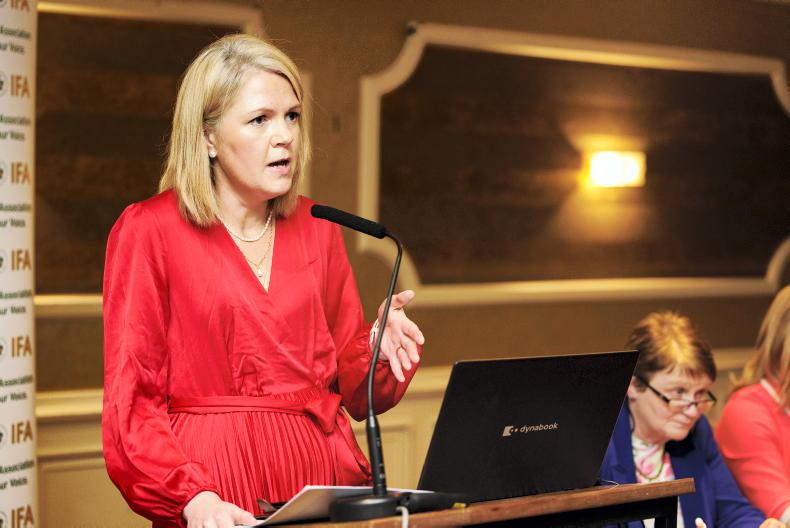
Agri solicitor Aisling Meehan told farmers that pre-nuptial agreements are not legally binding in Ireland. \ Donal O'Leary
“From a legal point of view, pre-nups are not illegal, but they’re not legally binding.
“I’m not against pre-nups. I would support them from the point of view that it gets the conversation going. It’s a good thing to talk it out because a lot of the time it’s not spoken about,” the solicitor told farmers.
She highlighted that if farmers are drafting pre-nups, there has to be full disclosure between both parties, months before a wedding.
“You have to give full disclosure of your assets, your income etc and then this has to be reviewed at regular intervals and especially if there’s a change in circumstances such as children,” she continued.
Assumption
Meehan quashed what she described as the “assumption” that as soon as a farmer marries, he or she loses land. “Women that aren’t on [the farm or land] title have absolutely no rights when it comes to the farm. There is this old adage that you go up the aisle with a full farm and you come down with half a farm. That’s not necessarily the case.
“You come down with half the farm if there’s divorce or separation proceedings.
“I’ve come across situations where you’ve spouses and farms that have been transferred out from underneath them and they knew nothing about it and really there’s nothing much they can do about it,” she said.
Agricultural consultant Mike Brady, speaking to the Irish Farmers Journal
this week, agreed that the 50:50 ‘down the aisle’ assumption is not the case.
“The judge has to provide proper provision for both parties – but that’s very broad. There’s no mention of percentages in the law, at all.
“If a husband left a wife out of a will, she’d be entitled to a third anyway. Even if he gave it to the dog’s home, she’d be entitled to a third and she can challenge the will on that. That’s always the baseline that I see,” he added.
Brady said much of the proper provision adjudication made in the Irish courts in relation to farms and marital breakdown comes down to what land a couple started with and how long a spouse has been working on the farm, if at all.
“If you walked down the aisle and the following week, she walked out on you, she’d get very little – that’s the reality.
“But if it was eight years in and you’ve two or three kids, she’d get a lot. If she was 20 years in and you’d three or four kids and she’s worked on the farm all her life and brought money in from inheritance as well, she’d get more. That’s the reality of it,” he said.
Lobby Government
As there was so much interest from farmers in pre-nups at the IFA meetings, Meehan suggested they lobby Government for a change.
“It’s a policy thing. If we’re looking for changes in tax, we’re looking for changes in law, you need to get on to politicians.
“There’s a huge appetite there for a change in the law,” she said.
IFA farm family chair Alice Doyle made a commitment that the IFA would lobby Government about the matter.
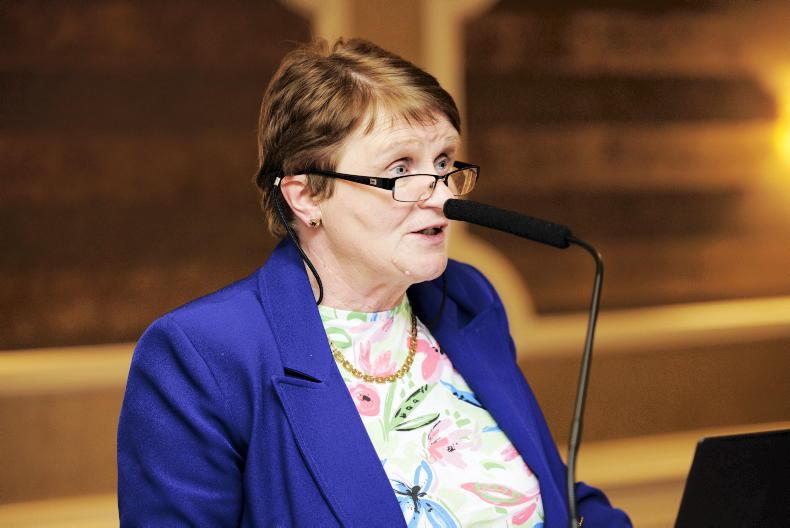
IFA farm family chair Alice Doyle. \ Donal O'Leary
“Why isn’t the IFA pushing more to make pre-nuptial agreements into law? I have suffered because I walked up [the aisle] and it cost me dearly. It’s something that should be looked at,” one farmer said.
“In the past, around 2013/2014, IFA did try to raise that issue with the Department of Justice and did quite a lot of work around it but could get no political hearing whatsoever on it,”responded Doyle.
“[Pre-nups] are something that has come to our attention and it’s particularly through these meetings that we’re hearing that it is now a big issue on farms and on family farms.
“You can guarantee that our committee will take it on board and deal with it,” she said.
Process
In the event of a marital breakdown involving a farm, Mike Brady told the Irish Farmers Journal how everything must be valued – land, stock, machinery, entitlements and loans – first to come up with a net worth.
The length of the marriage is then factored in by a judge, as well as the number of kids involved.
In a situation where a spouse marries in to a farm and works off farm, a provision of one-third of the land’s value, be it through the dwelling house, or the sale of an outfarm, would likely be seen as proper provision, according to Brady. However, he said that if a couple started out with 100ac inherited by the husband and another 50ac inherited by the wife, with the farm expanded to 250ac during the marriage and the wife had worked on the farm, a judge would be more likely to give an order of a 50/50 split of the assets.
Meehan also explained that there is another form of agreement, a co-habitants’ agreement, that can be written up between non-married farmer partners.
Such an agreement, similar to a pre-nup but with full legal standing, provides for how assets would be divided in the event of a relationship breakdown.
“Under this co-habitants’ act, there’s a redress scheme so that in the event that a relationship breaks down and you’ve a dependent partner, then they can apply for the equivalent of maintenance,” she said.
“I know that in Germany, no farmer will marry without a pre-nup. In my opinion, nothing says ‘I love you and not what you own’, more than a pre-nup.” “It’s not a gender issue. I met a woman in Tipperary who married a man, he had nothing, she had a farm, the marriage collapsed, they’d no children. He got half her farm which he then sold and moved abroad with.” “It’s about planning for the future. Divorce rates now in America are 50%, in the UK it’s one in three. It’s a very mature thing to do as well, protecting an asset.”“It’s about keeping it as a viable business. If a marriage collapses, why should a farm that’s been held together for generations, just because of a failed marriage, be destroyed?”
Read more
Assessing risk and farmers’ attitude to risk
Lessons from £500,000 family farm dispute
A surge in farmer interest in pre-nuptial agreements was evident at the IFA’s Farm Succession information meetings in Carlow and Cork last week.
Several farmers raised questions about the agreements and the fact that pre-nups are not legally binding in Ireland, citing examples of farms being “destroyed” by a marital breakdown.
Speaking at the events, agri-solicitor Aisling Meehan said pre-nuptial agreements are “becoming more of an issue” for farmers.
“I’m seeing more of it. I’m getting more enquiries. People are more concerned about it,” she said.
Legal standing
A pre-nuptial agreement is an agreement between two people on what should happen in relation to property and maintenance in the event of their marriage breaking down.
Pre-nups have no basis in law in Ireland. This means that if you have a pre-nuptial agreement in place and you end up in court following the breakdown of your marriage, the judge is not bound by the terms of the agreement between the two parties.
However while they are not legally binding, Meehan told farmers that a judge can have regard to a pre-nup in separation or divorce proceedings.

Agri solicitor Aisling Meehan told farmers that pre-nuptial agreements are not legally binding in Ireland. \ Donal O'Leary
“From a legal point of view, pre-nups are not illegal, but they’re not legally binding.
“I’m not against pre-nups. I would support them from the point of view that it gets the conversation going. It’s a good thing to talk it out because a lot of the time it’s not spoken about,” the solicitor told farmers.
She highlighted that if farmers are drafting pre-nups, there has to be full disclosure between both parties, months before a wedding.
“You have to give full disclosure of your assets, your income etc and then this has to be reviewed at regular intervals and especially if there’s a change in circumstances such as children,” she continued.
Assumption
Meehan quashed what she described as the “assumption” that as soon as a farmer marries, he or she loses land. “Women that aren’t on [the farm or land] title have absolutely no rights when it comes to the farm. There is this old adage that you go up the aisle with a full farm and you come down with half a farm. That’s not necessarily the case.
“You come down with half the farm if there’s divorce or separation proceedings.
“I’ve come across situations where you’ve spouses and farms that have been transferred out from underneath them and they knew nothing about it and really there’s nothing much they can do about it,” she said.
Agricultural consultant Mike Brady, speaking to the Irish Farmers Journal
this week, agreed that the 50:50 ‘down the aisle’ assumption is not the case.
“The judge has to provide proper provision for both parties – but that’s very broad. There’s no mention of percentages in the law, at all.
“If a husband left a wife out of a will, she’d be entitled to a third anyway. Even if he gave it to the dog’s home, she’d be entitled to a third and she can challenge the will on that. That’s always the baseline that I see,” he added.
Brady said much of the proper provision adjudication made in the Irish courts in relation to farms and marital breakdown comes down to what land a couple started with and how long a spouse has been working on the farm, if at all.
“If you walked down the aisle and the following week, she walked out on you, she’d get very little – that’s the reality.
“But if it was eight years in and you’ve two or three kids, she’d get a lot. If she was 20 years in and you’d three or four kids and she’s worked on the farm all her life and brought money in from inheritance as well, she’d get more. That’s the reality of it,” he said.
Lobby Government
As there was so much interest from farmers in pre-nups at the IFA meetings, Meehan suggested they lobby Government for a change.
“It’s a policy thing. If we’re looking for changes in tax, we’re looking for changes in law, you need to get on to politicians.
“There’s a huge appetite there for a change in the law,” she said.
IFA farm family chair Alice Doyle made a commitment that the IFA would lobby Government about the matter.

IFA farm family chair Alice Doyle. \ Donal O'Leary
“Why isn’t the IFA pushing more to make pre-nuptial agreements into law? I have suffered because I walked up [the aisle] and it cost me dearly. It’s something that should be looked at,” one farmer said.
“In the past, around 2013/2014, IFA did try to raise that issue with the Department of Justice and did quite a lot of work around it but could get no political hearing whatsoever on it,”responded Doyle.
“[Pre-nups] are something that has come to our attention and it’s particularly through these meetings that we’re hearing that it is now a big issue on farms and on family farms.
“You can guarantee that our committee will take it on board and deal with it,” she said.
Process
In the event of a marital breakdown involving a farm, Mike Brady told the Irish Farmers Journal how everything must be valued – land, stock, machinery, entitlements and loans – first to come up with a net worth.
The length of the marriage is then factored in by a judge, as well as the number of kids involved.
In a situation where a spouse marries in to a farm and works off farm, a provision of one-third of the land’s value, be it through the dwelling house, or the sale of an outfarm, would likely be seen as proper provision, according to Brady. However, he said that if a couple started out with 100ac inherited by the husband and another 50ac inherited by the wife, with the farm expanded to 250ac during the marriage and the wife had worked on the farm, a judge would be more likely to give an order of a 50/50 split of the assets.
Meehan also explained that there is another form of agreement, a co-habitants’ agreement, that can be written up between non-married farmer partners.
Such an agreement, similar to a pre-nup but with full legal standing, provides for how assets would be divided in the event of a relationship breakdown.
“Under this co-habitants’ act, there’s a redress scheme so that in the event that a relationship breaks down and you’ve a dependent partner, then they can apply for the equivalent of maintenance,” she said.
“I know that in Germany, no farmer will marry without a pre-nup. In my opinion, nothing says ‘I love you and not what you own’, more than a pre-nup.” “It’s not a gender issue. I met a woman in Tipperary who married a man, he had nothing, she had a farm, the marriage collapsed, they’d no children. He got half her farm which he then sold and moved abroad with.” “It’s about planning for the future. Divorce rates now in America are 50%, in the UK it’s one in three. It’s a very mature thing to do as well, protecting an asset.”“It’s about keeping it as a viable business. If a marriage collapses, why should a farm that’s been held together for generations, just because of a failed marriage, be destroyed?”
Read more
Assessing risk and farmers’ attitude to risk
Lessons from £500,000 family farm dispute








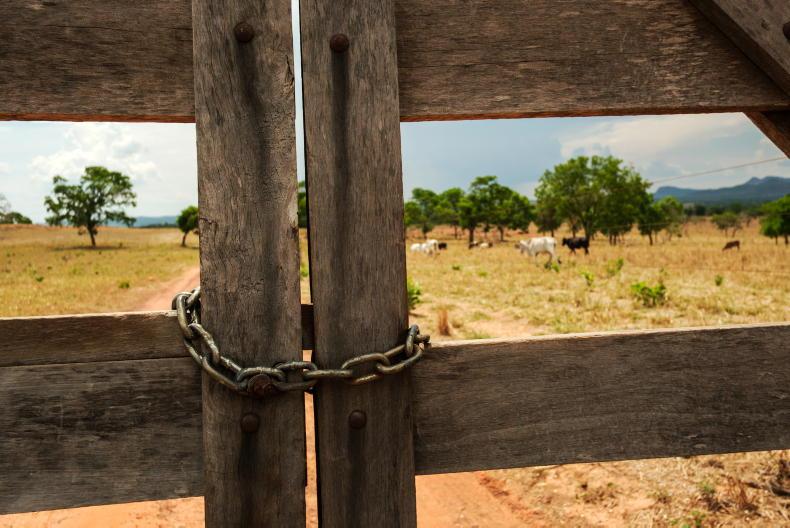

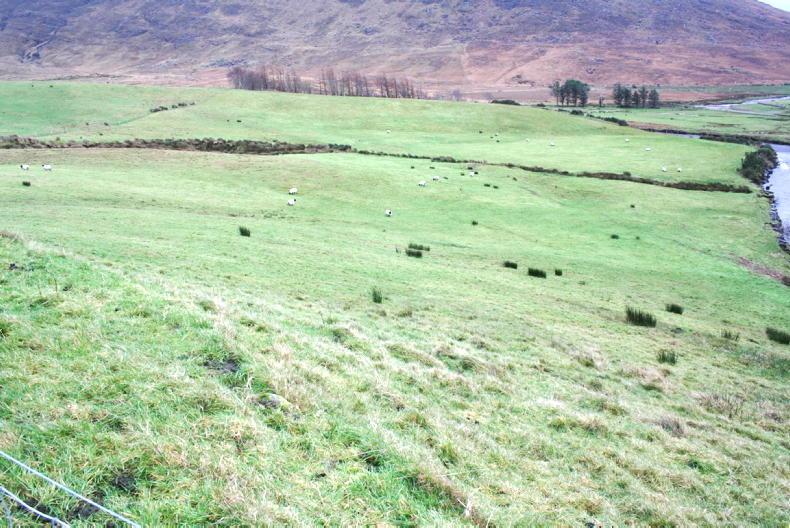
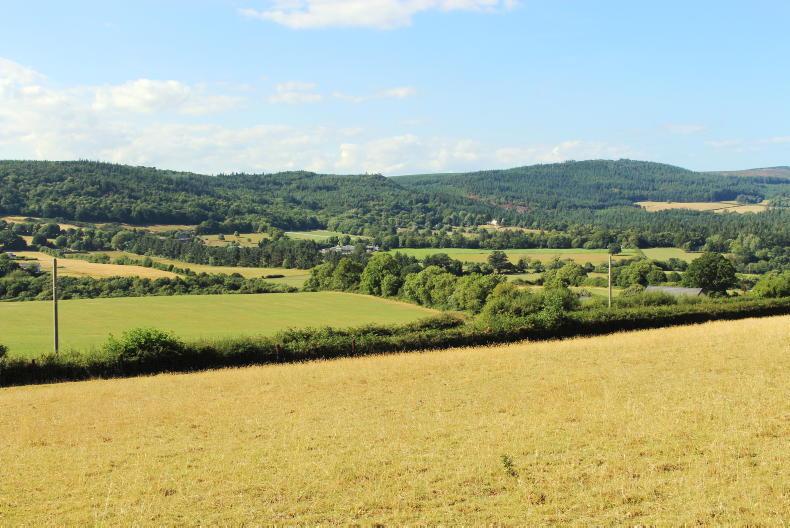
SHARING OPTIONS